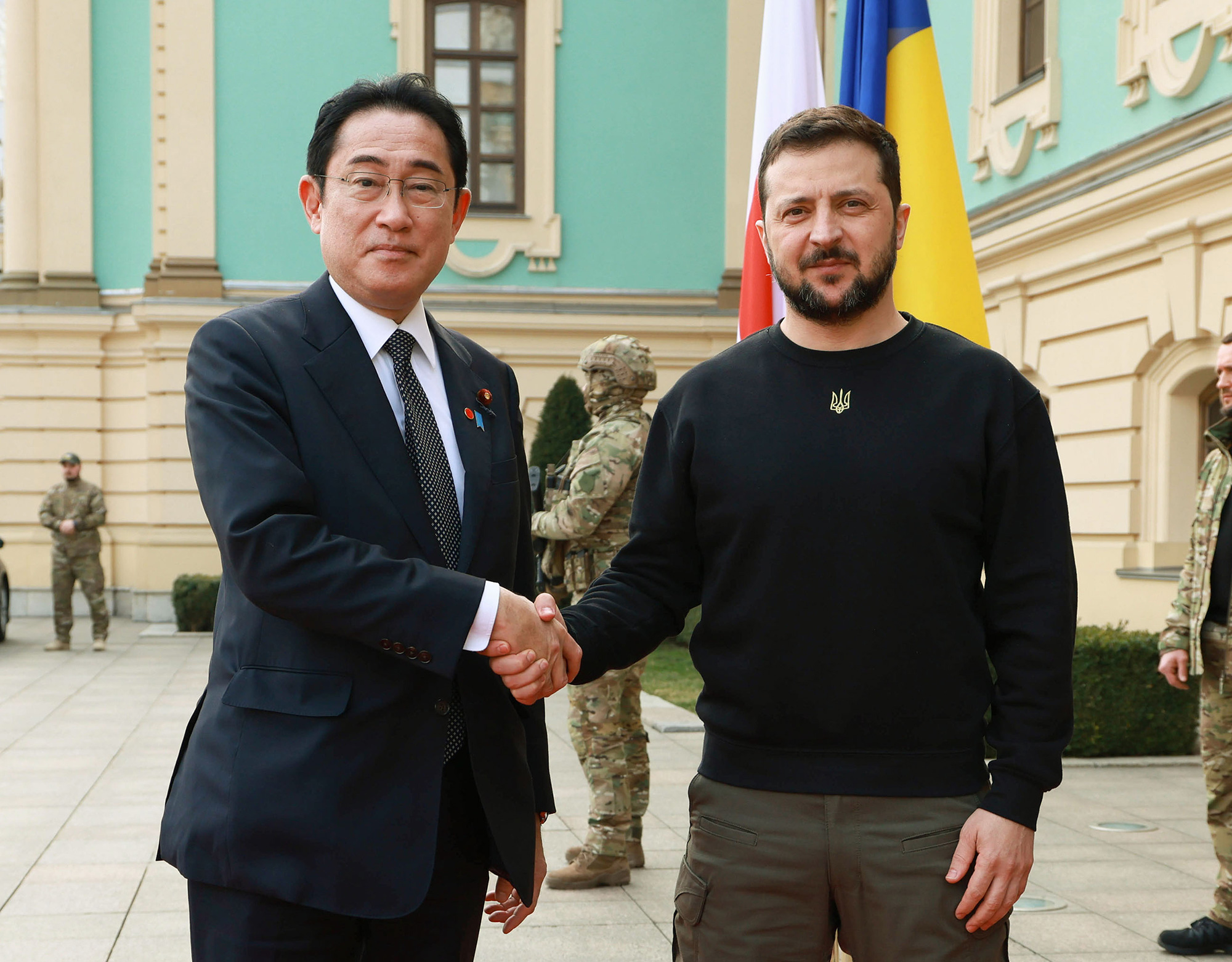Issue:
June 2023
Fumio Kishida is basking in the afterglow of local election wins and a successful G7 summit, but he can’t afford to be complacent

He has made the cover of Time magazine, his party performed well in local elections, and he hosted a successful G7 summit in Hiroshima. The spring of 2023 seems to be working out very well for Fumio Kishida. That has inevitably triggered media speculation that Japan’s prime minister will take advantage of the political momentum he has built to call snap lower house elections.
There is a strong likelihood that Kishida’s Liberal Democratic Party (LDP) could win an early election and reinforce its mandate. In several polls, his administration’s approval rating has rebounded to around 40%, and there is less public criticism then there was just a few weeks ago.
Since his successful visit to Ukraine in March and an apparent attempt on his life in Wakayama on 15 April, Kishida has benefitted from warmer public sentiment towards him.
Some commentators pointed to weaknesses in Kishida’s security detail, asking how it could be possible for someone carrying a bomb to get within 10 meters of the prime minister, just nine months after Shinzo Abe’s assassination. By contrast, journalists who on the day of the Wakayama incident were covering the G7 environment ministers meeting in Sapporo had their baggage checked several times a day and remained under the watchful eye of officials. I wonder if the perception of risk is misdirected when it targets only representatives of the media.
By giving pledges to the nationalist fringe of his party, including hardcore supporters of Abe, Kishida is trying to silence internal dissent. His decision to increase the defense budget to 2% of GDP within five years is part of this. Even those who had doubts about the plans have largely remained silent. “It is the government’s decision … this is not the time to criticize it,” a former defense minister during Abe’s tenure told me.
The lack of scrutiny from inside his own party means Kishida has been able to bask in favorable media coverage in recent weeks, the exception being a report by Shukan Bunshun, published soon after the G7, about a family party hosted by his eldest son, Shotaro, at the prime minister’s official residence in December 2022.
That aside, everything seems to pointing in the right direction for Kishida. But there is evidence that his current popularity is fragile. He may have weathered revelations about the LDP’s links with the controversial Unification Church, but this issue could come back to trouble him once the trial of Abe’s suspected killer, Tetsuya Yamagami, begins – although a court date has yet to be announced. And the government will have to decide whether to take tough action against the church – including its possible dissolution – when the education ministry reports back on its investigation into the organisation.
How to pay for Japan’s ambition defence spending is a potentially explosive issue. Kishida has promised that it won’t be paid for through tax increases, but who can say that will remain the case if he wins a general election?
And while the LDP performed better than any other party in April’s local elections, data show that successful LDP candidates won fewer votes than last time, suggesting that their base is under strain and that they simply benefitted from a perennially weak opposition. In addition, the LDP will be looking over its shoulder at the Japan Innovation Party, which is extending its influence well beyond its traditional Osaka heartland.
Much of Japan’s mainstream media are treating Kishida’s government with kid gloves. They have not even objected to the retention of Covid-era restrictions for press conferences by Kishida and his chief cabinet secretary, even though those measures have been lifted elsewhere. More than 100 journalists were able to attend the prime minister's press conferences before the pandemic. That number fell to 29 during Covid-19, and has risen only slightly, to 43, today.
Journalists did not protest when the ministry of foreign affairs persisted in telling reporters at the G7 that the Ukrainian president, Volodymyr Zelenskiy, would attend the summit online, even as reports said he would arrive in Hiroshima within 24 hours. The ministry knew several days earlier that Zelenskiy would come to Hiroshima; that much had been confirmed by Ukrainian government officials and French sources. And there were no media voices of dissent over Kishida’s stage-managed closing press conference, where the foreign ministry decided in advance who would ask questions … and how they would be answered.
Zelenskiy, on the other hand, took lots of questions from random journalists in Hiroshima and had not prepared a single answer in advance. It was a press conference in the truest sense. The contrast with Kishida was palpable.
Karyn Nishimura is a correspondent for the French daily newspaper Libération and Radio France.

